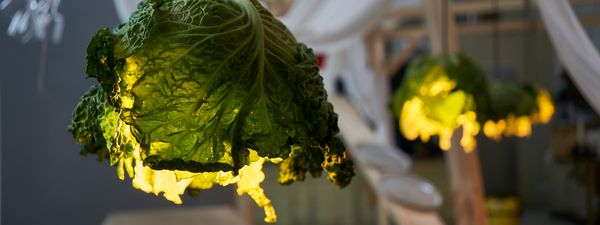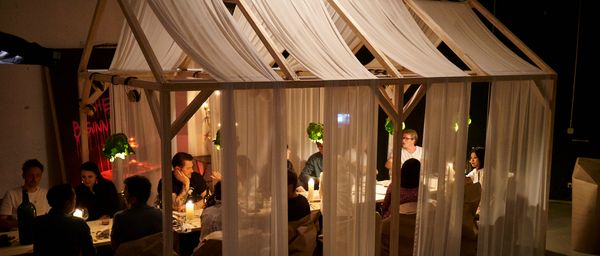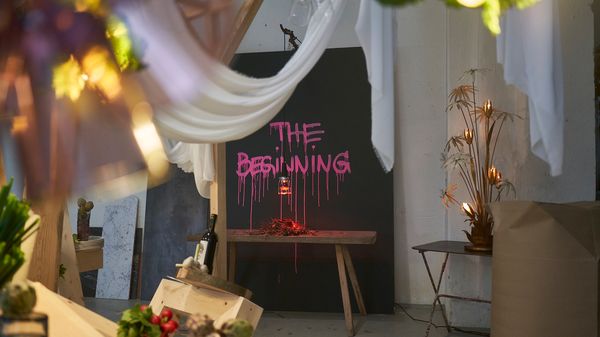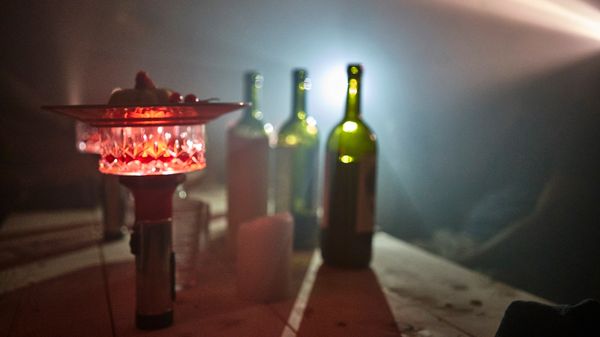
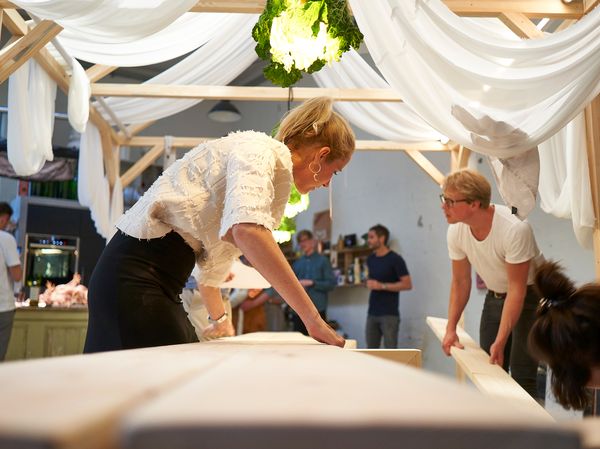
How the theme influenced the decorative elements
A bold idea, creatively realised
The Beginning – Origin: everything is created and developed. That was the guiding theme of the evening and it was sustained consistently through the event’s setting. An unfinished house was the main focal point of the decorative theme. Later, guests were asked to build a communal dining table from the planks that were ornately laid out in the room.
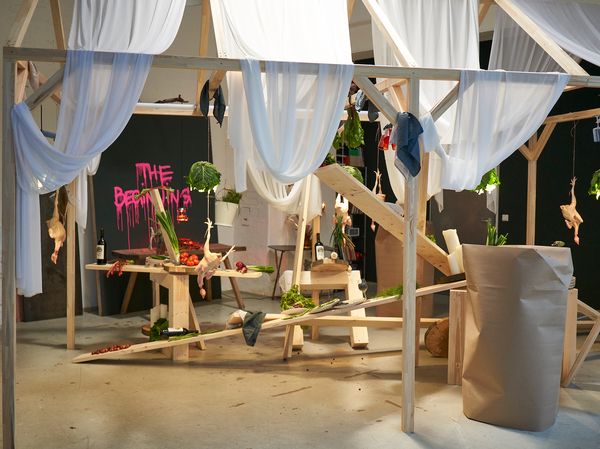
When guests become important players
Draped over the planks were berries, onions, tomatoes and other vegetables. Cutlery and glasses hung from the beams – and between them hung plucked chickens and large fish as a whimsical twist. Lamps decorated with savoy cabbage leaves immersed the scenery in a surreal light. The guests themselves became symbolic hunters and gatherers and were tasked with collecting food from the room and delivering their harvest to be cooked.
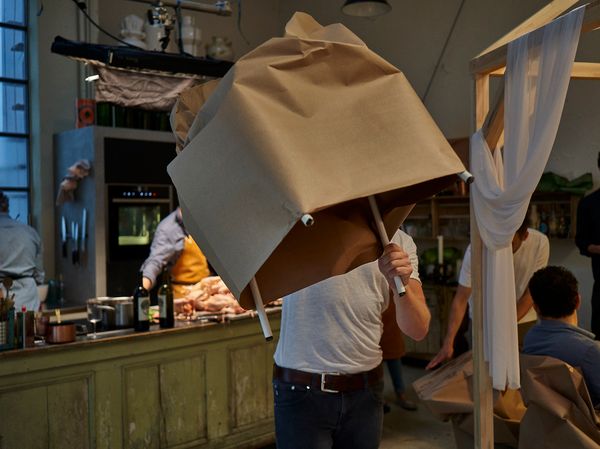
Unfinishedness becomes a playful part of the programme
Silvia Knüppel, one of the creatives who had been invited, carried the theme of the evening further. Together with other guests, she created ‘crumple covers’ – chair covers made of brown parcel paper. The designer explained the reasoning behind this design idea: “It means you can use chairs for your dinner party that are broken or that don’t match, allowing you to create a uniform seating arrangement.”
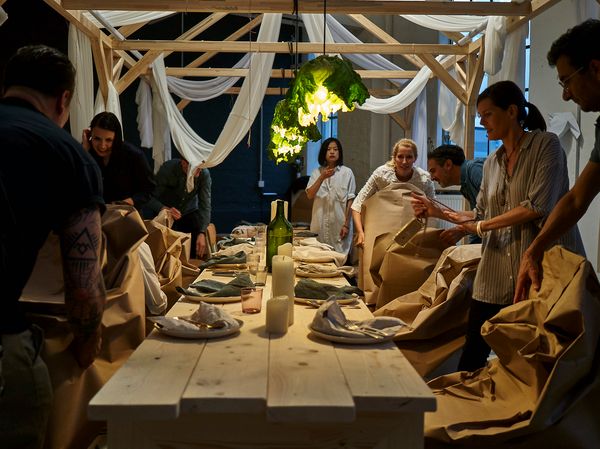
Aim of the evening: enjoyment with all senses
Eating becomes a richer experience when all the senses are engaged. This can be achieved using acoustic interludes such as an aria sung by an opera singer, or using tactile experiences. This included the idea of serving starters on unfinished tree trunk slices, and asking guests to eat some of the courses using their hands.
